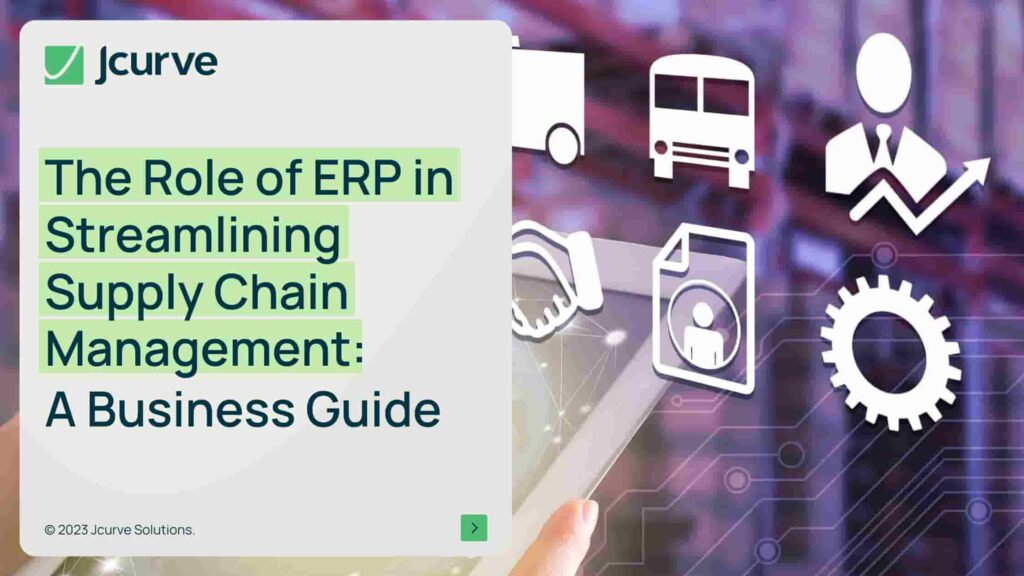Introduction
Singapore, known for its strategic location and advanced infrastructure, plays a pivotal role in global supply chain management. Enterprise Resource Planning (ERP) systems are essential tools that help businesses in Singapore enhance their supply chain efficiency. These systems streamline the transformation of raw materials into finished products, ensuring timely delivery and aligning business operations with consumer expectations cost-effectively.
The Function of ERP within Supply Chain Management
ERP systems offer comprehensive integration of business functions, providing real-time data across the supply chain. This integration is crucial for:
- Demand Planning Integration: Accurate demand forecasting is essential for maintaining optimal inventory levels. In Singapore, where market demand can fluctuate rapidly, ERP systems help businesses predict consumer needs accurately.
- Procurement and Manufacturing: Automation in ERP systems enhances procurement efficiency and production scheduling. This is particularly important in Singapore’s manufacturing sector, which relies on precision and efficiency.
- Inventory Management: Real-time visibility into inventory levels helps reduce carrying costs and prevent overstocking or understocking, which is critical for businesses operating in Singapore’s competitive market.
- Order Management: Centralised order processing improves customer satisfaction by ensuring timely and accurate deliveries. This is vital for maintaining customer loyalty in Singapore’s service-oriented economy.
- Flexibility: ERP systems enable quick adaptation to market changes and disruptions, which is essential for businesses in Singapore that operate in a rapidly changing environment.
Leveraging ERP Systems for Supply Chain Management
Streamlined Supply Chain Planning
ERP systems provide real-time insights into inventory and order statuses, which is crucial for strategic resource allocation and operational efficiency. In Singapore, where logistics and supply chain management are key economic drivers, this capability is indispensable.
Automated Processes
Automation in procurement processes enhances supplier selection, reduces errors, and speeds up timelines. This is particularly relevant in Singapore, where efficiency and accuracy are highly valued in business operations.
Route Optimization
ERP systems design efficient delivery routes, considering factors such as Singapore’s urban traffic patterns. This optimization helps reduce delivery costs and times, enhancing overall supply chain efficiency.
Real-Time Analytics and Reporting
Accurate, real-time data analytics enable better decision-making across the supply chain. In Singapore, where data-driven decision-making is crucial for staying competitive, ERP systems provide a significant advantage.
Supplier Management and Vendor Performance Evaluation
ERP systems centralise supplier data, fostering collaboration and enabling performance assessment for better strategic choices. This supports Singapore’s emphasis on maintaining strong business partnerships and high supplier standards.
Complete Visibility and Improved Collaboration
ERP systems unify supply chain operations, providing enterprise-wide visibility and fostering collaboration among internal and external partners. This aligns with Singapore’s collaborative business culture and helps ensure smooth operations.
Customization and Scalability
Modern ERP systems are scalable and customizable, supporting businesses of all sizes in Singapore, from SMEs to multinational corporations. This flexibility allows companies to tailor their ERP solutions to meet specific needs.
Material Management
Material Requirements Planning (MRP) software streamlines production planning by synchronising sales data and production timelines. This reduces inventory costs and enhances production efficiency, which is crucial for Singapore’s manufacturing sector.
Benefits of Integrating ERP with Supply Chain Management
- Enhanced Visibility and Control: ERP systems provide comprehensive monitoring of the supply chain, enabling businesses to track every aspect of their operations.
- Minimised Costs: Cloud-based ERP systems streamline operations and reduce costs, which is essential for maintaining profitability in Singapore’s competitive market.
- Increased Responsiveness: Predictive analytics help businesses anticipate demand shifts and disruptions, allowing for quicker responses to market changes.
- Better Collaboration: Uniform access to data enhances collaboration among departments and with external partners, fostering a more cohesive business environment.
- Compliance and Risk Management: Comprehensive tracking ensures regulatory compliance, which is particularly important in Singapore’s highly regulated business environment.
- Personalization and Customer Experience: Customization capabilities enable businesses to tailor their services to meet specific customer needs, enhancing overall customer satisfaction.
Optimising Supply Chain with NetSuite ERP
Partnering with Jcurve Solutions
Jcurve Solutions specialises in implementing NetSuite ERP for supply chain management in Singapore. Their solutions offer features such as real-time updates, demand planning, streamlined procurement, and global operations management. This adaptability ensures that as businesses grow, their ERP system evolves to meet changing demands.
ERP and Supply Chain FAQs
- What is an ‘ERP in supply chain’?
ERP in supply chain integrates and manages core business processes, including supply chain activities, providing a unified system for better efficiency. - What does ERP stand for in logistics?
ERP stands for Enterprise Resource Planning. It focuses on integrating and optimising various logistic-related processes to enhance overall operational efficiency. - What is CRM and ERP?
CRM (Customer Relationship Management) manages customer interactions and relationships, while ERP (Enterprise Resource Planning) integrates core business processes to streamline operations. - What is the role of ERP and SAP in logistics?
ERP and SAP systems optimise supply chain processes, from inventory management to delivery, ensuring efficient operations and better resource management.
Conclusion
As Singapore’s market becomes increasingly complex, ERP systems are essential for enhancing supply chain management. They provide the tools needed for better visibility, efficiency, and agility, helping businesses navigate challenges and remain competitive in the global marketplace.










